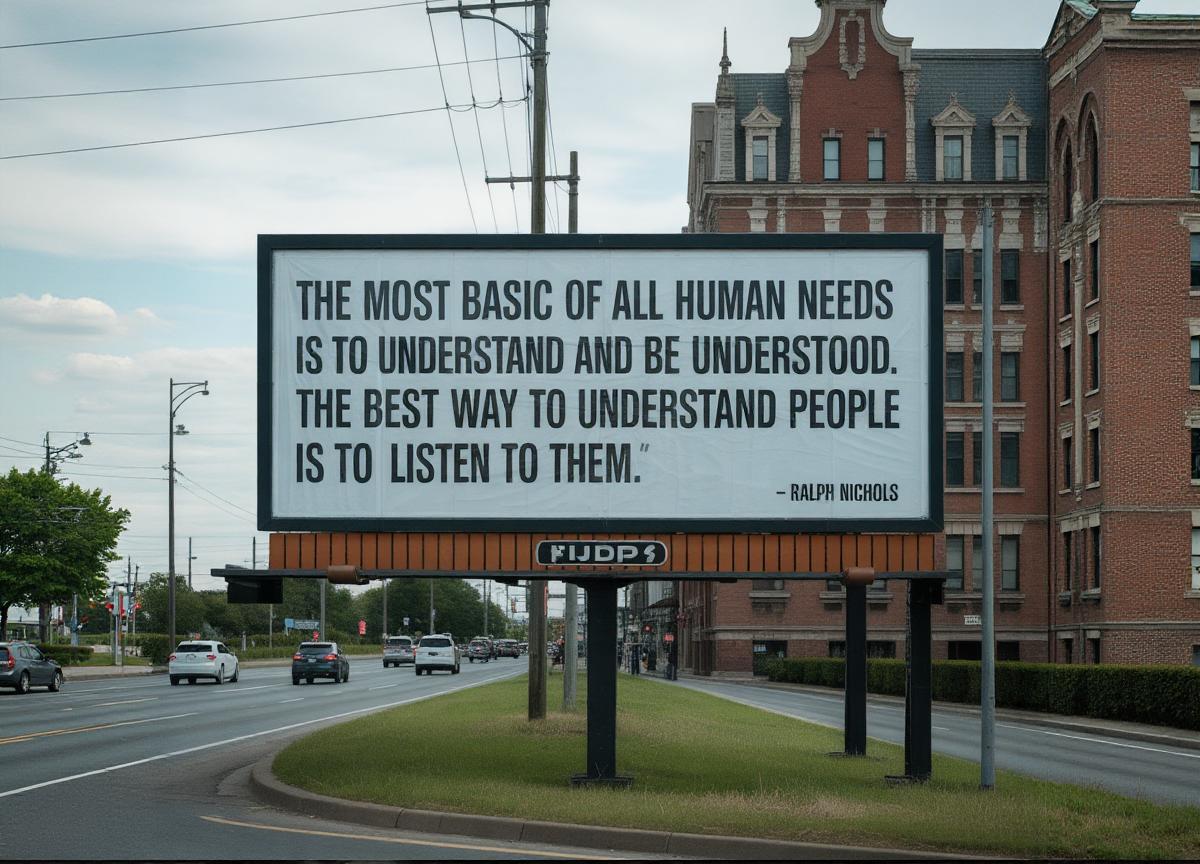Research shows that leaders who listen are perceived as more trustworthy, approachable and effective.
For example, a study published in the International Journal of Listening found a strong correlation between leaders' listening behaviours and employees' trust and job satisfaction (Kluger & Itzchakov, 2022). There is also evidence that when employees feel heard, their morale improves, leading to increased engagement and retention (Gentry, Weber, & Sadri, 2016).
One of the times when it is critical to listen - and listen effectively - is when you coach a team member who comes to you with a problem.
Listening effectively in coaching moments (and in other important leadership interactions) involves an intentional kind of listening that I think of as ‘listening to hear’. So what do I mean by that?
Listening to hear
In reality, listening to hear is more than just listening. It involves taking in all the signals coming from the other person in the conversation so that you can try to fully comprehend both what is being said, and the context around it.
So, listening to hear means listening for and observing the following kinds of things:
What is being said - what is the person explicitly conveying? Do they need help, validation, support, or just to report in?
What is not being said - is there more to it? Could there something else they need or want to convey that they’re not yet ready to say? Is there something they are avoiding?
Their emotions - what do the words, the tone, the body language tell you about the way the person is feeling?
Your emotions - what are you feeling as you listen? Are you feeling interested, excited, concerned, worried? What is your body telling you? Are you tensing up or relaxed?
Themes - do you detect any themes or patterns that connect what is being said or point to what is unsaid?
Motivation - what is the person motivated by? What can you detect about their values?
Motive - what is their motive in having this conversation now? What do they hope to accomplish from it?
Strengths - what strengths are coming through in what the person is saying and how they are saying it? How might these be useful in helping them?
Advertisement
Fact-based news without bias awaits. Make 1440 your choice today.
Overwhelmed by biased news? Cut through the clutter and get straight facts with your daily 1440 digest. From politics to sports, join millions who start their day informed.
What will stop you listening to hear
As you can see, listening to hear is far from passive.
And it can easily be derailed because there are many other ways of listening that we all naturally deploy or fall into when we are not intentional about listening to hear. These will get in the way of your ability to take in what you should be listening for. Here are some examples:
Listening to respond - when you are consciously thinking about what you are going to say next in the conversation, you will miss so much and your response will inevitably be half-baked as a result.
Listening to defend - likewise, if you immediately slip into a defensive mindset, you will only hear what you believe is helpful to your defence.
Listening to display wisdom - the essence of coaching is that you are helping the other person to discover their own wisdom. Listening for an opportunity to show how much you know completely defeats the purpose.
Listening to match, trump or compare - you may have had a similar experience to that which is being described to you, and it may be usefully mentioned in due course. But if you dive straight in to share your experience, you will miss much of what is really being conveyed in the conversation - and you will be ignoring the other person’s needs entirely.
Jumping to conclusions - if you quickly conclude that you know what the person is saying, and is going to go on to say, you will not really be listening at all. And what is more, because you weren’t listening, the conclusion you have reached almost certainly be wrong.
If you think about it, what all of these barriers to listening have in common is that they are all examples of the listener listening for their own purposes and from their own point of view, rather than focusing on the other person in the conversation.
So, if you want to listen well and really hear what the other person is saying, you need to remember that it is not all about you!
And if you can do that, you will have a much better chance of being able to conduct valuable coaching conversations.
You will also find that you are trusted more as a leader and that you have a more motivated and engaged team around you.
References
The title of this piece is a reference to the beautiful song of the same name by Sandy Denny. You can hear it here.
Kluger, A. N., & Itzchakov, G. (2022). The Power of Listening in Helping People Change. International Journal of Listening, 36(2), 70-82.
Gentry, W. A., Weber, T. J., & Sadri, G. (2016). Empathy in the Workplace: A Tool for Effective Leadership. Center for Creative Leadership White Paper.
Biswas-Deiner, R. and Nieuwerburgh, C. (2025). Radical Listening - The Art of True Connection. Berrett-Koeler Publishers Inc.
How I can help you
Coaching - I have a few spots available for 1 to 1 coaching. I can help you with any of the people leadership challenges you might be facing. There are more details here.

